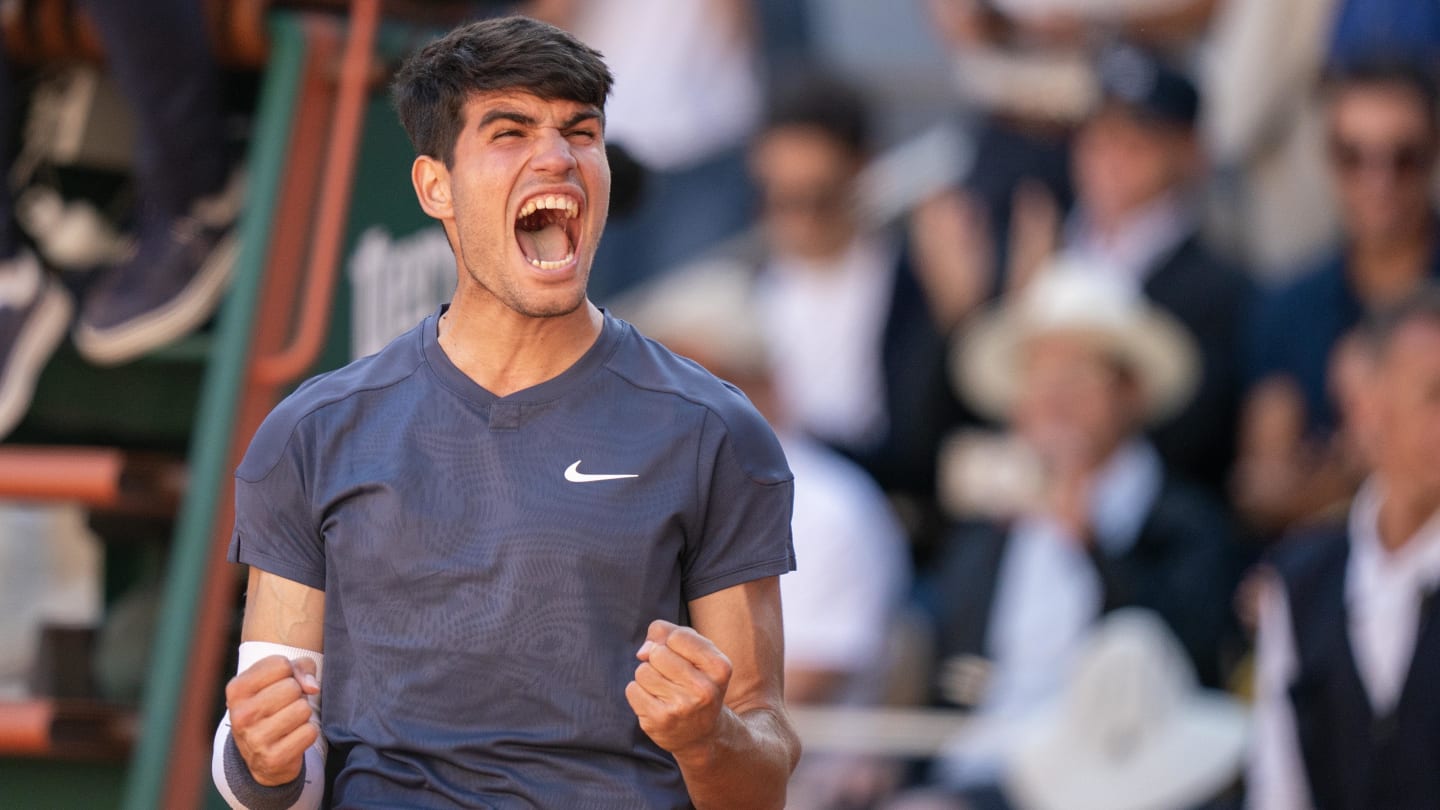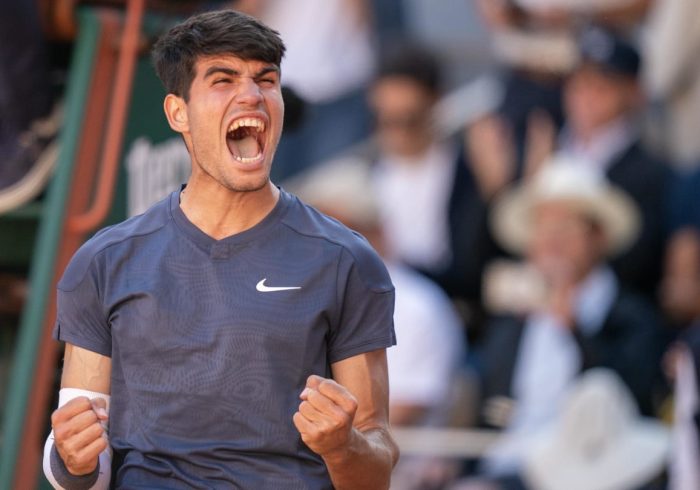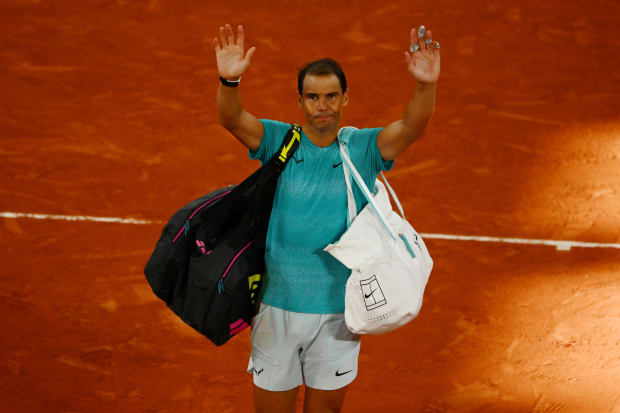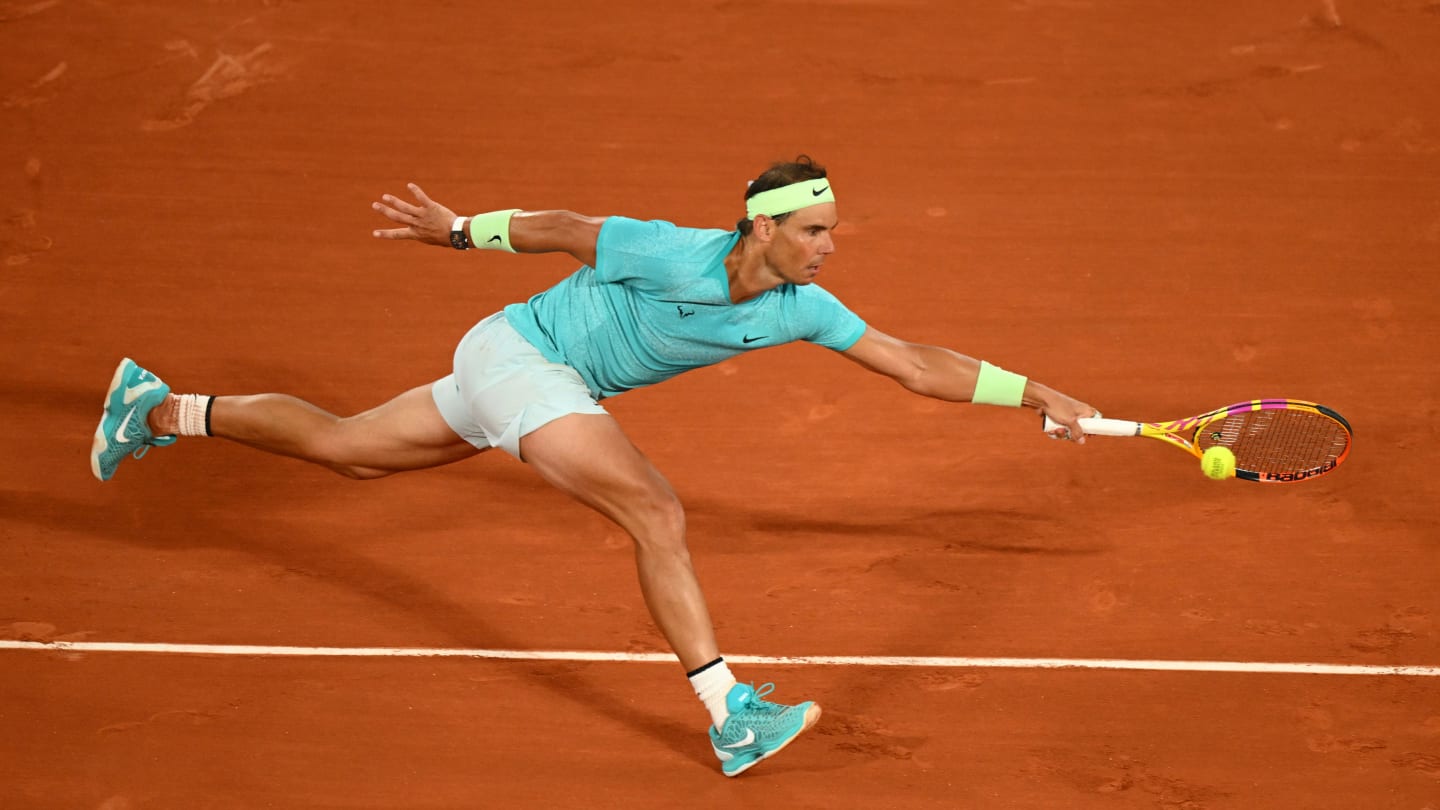Carlos Alcaraz Is the New King of Clay With French Open Win

It may as well have been the slogan for the entire event, in the semifinals of the French Open, Carlos Alcaraz revealed that the key to winning clay court tennis matches was to enjoy the suffering. On Sunday afternoon, and then, as evening spread over Roland Garros, there was more suffering than enjoyment. But in the end, the Spaniard prevailed and won the third major of his ascending career, beating Germany’s Alexander Zverev in the final 6–3, 2–6, 5–7, 6–1, 6–2.
In a strange, mercurial and episodically brilliant match, Alcaraz overcame both himself and his opponent. If he did not achieve the peak level he displayed winning his other two majors, he showed a remarkable ability to turn a tennis match into a chess match, make subtle adjustments and reset after some inexplicable lapses.
Alcaraz won the first set 6–3, important given that he was trailing Zverev 4–5 in their head-to-head coming into the match. He then dropped the second set, as his level dipped. In the third set, he was up 5–2, on the cusp of a commanding 2–1 set lead, and then lapsed again losing five straight games. He recovered to win the fourth 6–1 and closed out the match with perhaps his best tennis of the afternoon.
In winning the title, the Spaniard, who only turned 21 last month, is now up to three majors. He is the youngest player to win a major on all three of tennis’s surfaces. He has now—get this—won more majors than all male players born in the 1990s combined.
THIS. MOMENT. 💫🇪🇸#RolandGarros pic.twitter.com/JQdRxR4FOM
— Roland-Garros (@rolandgarros) June 9, 2024
Zverev, on the other hand, will be devastated. In his first major final in 2020, he squandered a 2–0 set lead against Dominic Thiem in the U.S. Open and lost in five sets. On Sunday, he was up two sets to one and couldn't close. Zverev showed an ability to compartmentalize in light of his legal matter being discontinued Friday, settling an abuse case brought by his former girlfriend. But this defeat will sting. With time, perhaps he will take solace in knowing he is the only player male or female to make it to the semifinals or better at Roland Garros in four straight years. But now, in his late 20s, the clock is ticking and an opportunity slipped away.
A theme of transition rang through this tournament. It was easy to forget that in the first round, Zverev beat Rafael Nadal, the 14-time champion, who may have played here for the final time. A week later, Novak Djokovic announced he couldn't play his quarterfinal match because of knee surgery. As old kings fade, a new one emerges. Alcaraz brings a versatile game, a knack for showmanship, an ability to hit the gas, but also—as he showed today—sometimes shrewdly hit the break. He now goes to Wimbledon to defend his title and win his fourth major. Did we mention he’s only 21?


